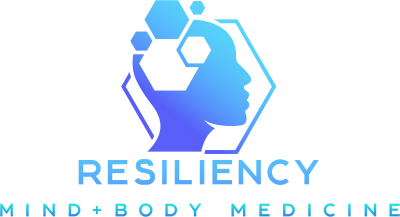In recent years, the field of pharmacology has witnessed a resurgence of interest in psychedelic substances, and one compound that has garnered considerable attention is psilocybin. Derived from certain species of psychedelic mushrooms, psilocybin has demonstrated promising potential in the treatment of various mental health conditions.
Pharmacology and Mechanism of Action
Psilocybin is a naturally occurring psychedelic compound found in over 200 species of mushrooms, commonly known as “magic mushrooms.” Once ingested, psilocybin is rapidly metabolized into its active form, psilocin, which interacts primarily with serotonin receptors in the brain. Specifically, it binds to serotonin 2A (5-HT2A) receptors, leading to a cascade of neurochemical changes that alter perception, mood, and cognition.
The 5-HT2A receptor activation by psilocybin leads to increased glutamate release, particularly in the prefrontal cortex. This heightened glutamate transmission, along with the alteration of other neurotransmitter systems, promotes changes in brain connectivity. These changes are thought to underlie the profound alterations in consciousness, perception, and emotional processing experienced during a psilocybin session.
Furthermore, psilocybin’s influence on serotonin receptors may promote neuroplasticity and facilitate the formation of new neural connections. This neuroplasticity hypothesis suggests that the profound and transformative experiences induced by psilocybin may lead to long-lasting changes in individuals’ cognitive and emotional functioning. This is one of the key therapeutic aspects of the treatment current research is attempting to assess for reduction of severe mental health symptoms.
Dosing
The dosing of psilocybin is crucial to ensure a safe and beneficial experience. It is typically administered orally, either by consuming fresh or dried mushrooms or through standardized pharmaceutical preparations. The dosage varies depending on the individual’s weight, sensitivity, and desired outcome. Clinical trials often utilize carefully controlled settings with low to moderate doses (1mg to 25mg) to maximize therapeutic effects while minimizing the risk of adverse events.
Effectiveness for Mental Health Conditions
Research on the therapeutic potential of psilocybin for mental health conditions has shown promising results, particularly in the treatment of depression, anxiety disorders, post-traumatic stress disorder (PTSD), and substance use disorders. Several small-scale studies have reported significant reductions in depressive symptoms and improvements in emotional well-being following psilocybin-assisted therapy. Psilocybin has also shown potential in facilitating meaningful and transformative experiences that may lead to long-term positive changes in an individual’s perception, behavior, and emotional well-being.
Current Areas of Research
- Treatment-Resistant Depression: Psilocybin has shown promise in addressing treatment-resistant depression, a condition where individuals do not respond well to traditional antidepressant medications. Research suggests that psilocybin-assisted therapy may provide rapid and sustained relief from depressive symptoms, potentially due to its ability to modulate serotonin receptors and promote neuroplasticity.
- Anxiety Disorders: Studies are exploring the potential of psilocybin in alleviating symptoms of various anxiety disorders, such as generalized anxiety disorder (GAD), social anxiety disorder (SAD), and obsessive-compulsive disorder (OCD). Psilocybin’s interaction with serotonin receptors may contribute to reduced anxiety and increased emotional resilience.
- Post-Traumatic Stress Disorder (PTSD): Psilocybin-assisted therapy is being investigated as a potential treatment for PTSD. Early studies have shown promising results, with psilocybin helping individuals process and integrate traumatic experiences. By modulating serotonin receptors and enhancing emotional processing, psilocybin may assist in reducing the emotional burden associated with PTSD.
- Substance Use Disorders: Research suggests that psilocybin may have therapeutic potential in treating substance use disorders, including alcohol and tobacco dependence. Psilocybin-assisted therapy has been associated with increased motivation to change addictive behaviors, enhanced self-efficacy, and reduced cravings. Its impact on serotonin receptors may help disrupt maladaptive reward pathways and facilitate psychological insight.
Risks and Contraindications
While psilocybin has shown promise as a therapeutic agent, it is essential to consider the potential risks and contraindications associated with its use. Psilocybin can induce intense psychological experiences that may be overwhelming or distressing for some individuals, especially those with a history of psychosis or severe psychiatric disorders. Additionally, the use of psilocybin should be approached with caution in individuals with cardiovascular conditions or a predisposition to certain mental health disorders. Psilocybin may also increase the risk of serotonin syndrome if used concurrently with antidepressant treatment. Adequate screening, preparation, and supervision by trained professionals are essential to mitigate potential risks.
Legal Status
The legal status of psilocybin varies across countries and regions. As of the writing of this article, psilocybin is classified as a Schedule I controlled substance in the United States, meaning it is considered illegal for recreational use and has no recognized medical value. However, some cities and states in the U.S., such as Denver and Oregon, have decriminalized or legalized psilocybin for therapeutic purposes. In other countries, such as Brazil, Jamaica, the Netherlands, and Portugal, psilocybin is either decriminalized or legal in certain contexts.
Conclusion
Psilocybin’s potential as a therapeutic agent for mental health conditions is a topic of extensive research. Its ability to modulate serotonin receptors and induce transformative experiences has shown promise in addressing treatment-resistant depression, anxiety disorders, PTSD, and substance use disorders. Ongoing research aims to further elucidate the specific mechanisms of action and optimize therapeutic protocols to maximize the benefits while mitigating potential risks. As the field progresses, psilocybin may offer new avenues for treating mental health conditions and improving overall well-being.
References
https://www.hopkinsmedicine.org/psychiatry/research/psychedelics-research.html

